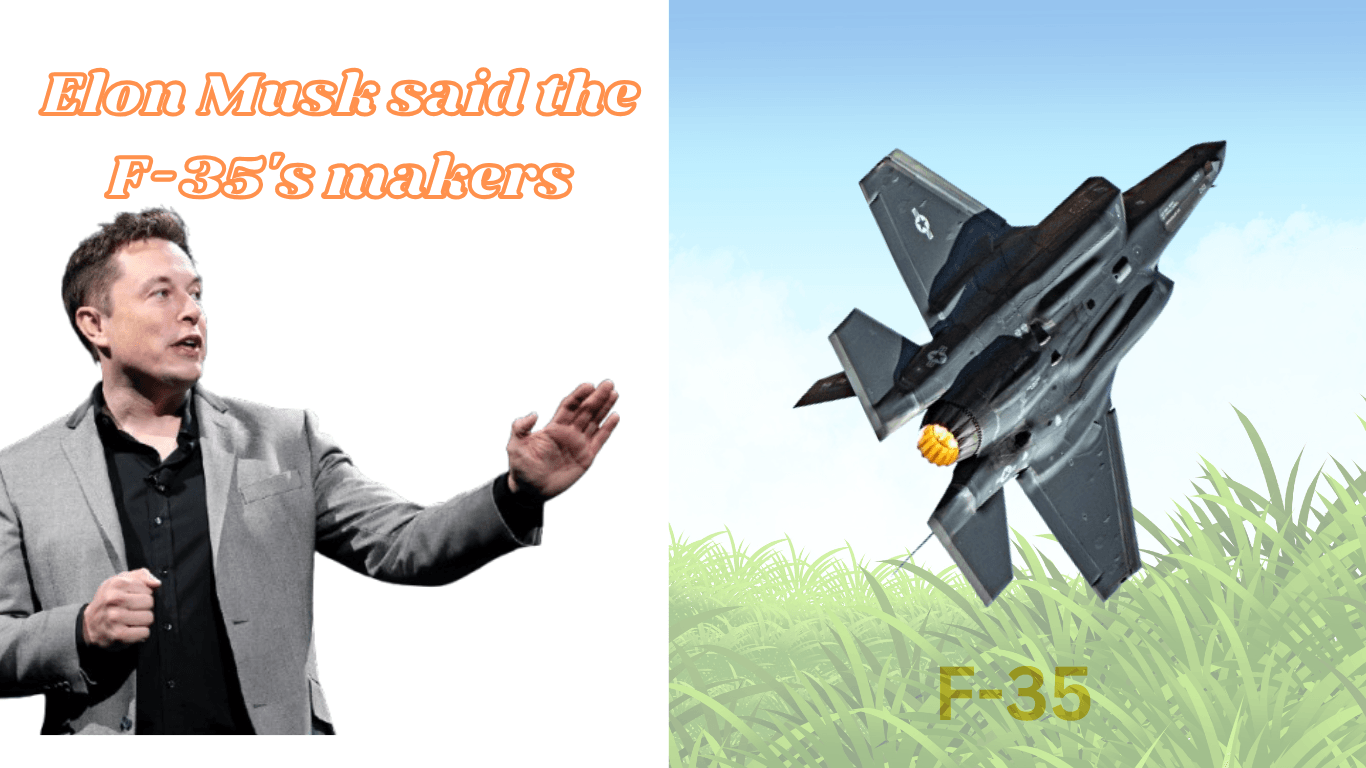- Elon Musk publicly criticized the F-35 program on social media.
- His remarks come ahead of his role in advising President Trump on government efficiency in 2025.
- The F-35 program is expected to reach a total cost of around $2 trillion over its lifespan, according to the GAO.
Elon Musk, who is set to assist President-elect Donald Trump with government efficiency initiatives in 2025, expressed strong disapproval of the Pentagon’s F-35 program in a series of posts on social media. On Sunday, Musk shared a video featuring coordinated drone swarms, commenting, “Meanwhile, some idiots are still building manned fighter jets like the F-35,” with a “trash can” emoji to underscore his point.
When another user defended the capabilities of the F-35, Musk quickly dismissed the argument, labeling the jet as a “poor design.”
In a subsequent post, Musk contended that crewed fighter jets are inefficient when it comes to extending missile ranges or conducting bombing missions, arguing that drones could achieve these objectives without the need for a pilot. Musk also questioned the effectiveness of stealth technology, claiming that fighter jets like the F-35 are “laughably easy” to shoot down.
This sentiment is consistent with Musk’s past comments advocating for a shift away from manned aircraft in favor of drones.
Mauro Gilli, a military technology expert at the Center for Security Studies at ETH Zurich, acknowledged that Musk’s concerns about the F-35’s cost overruns and delays were legitimate. However, Gilli also pointed out flaws in Musk’s argument. He clarified that the issues with the F-35 are largely due to challenges with its electronics and software, not its status as a crewed aircraft. Gilli noted that drones capable of operating in enemy airspace would require even more advanced and costly autonomy technology, making them potentially as expensive, if not more so, than manned jets.
Additionally, Gilli argued that Musk’s suggestion of using “reusable” drones still ignores the need for these drones to possess the same level of stealth as the F-35 in order to avoid detection and enemy fire, which undermines Musk’s critique of the F-35’s stealth capabilities.
Gilli concluded that the development of such autonomous drones would likely face similar or even greater cost and technological challenges, given that advanced electronics and software are already a major source of delays and increased costs in the F-35 program.
Musk’s Potential Influence on F-35 Program and Pentagon Budgeting Still Unclear
It remains uncertain whether Elon Musk will use his upcoming advisory role to influence the F-35 program, which holds the title of the Pentagon’s most expensive fighter initiative. Despite this, Musk has raised concerns about government spending, particularly in defense, through a recent opinion piece in The Wall Street Journal.
In the article, Musk, along with Vivek Ramaswamy—who will lead the newly created Department of Government Efficiency under President Trump—criticized the Pentagon’s financial management. Musk pointed out the Pentagon’s failure to pass its seventh consecutive audit, suggesting this failure indicates a lack of oversight and transparency regarding how its $800 billion annual budget is utilized.
Musk and Ramaswamy’s article outlined their plans to combat the “waste, fraud, and abuse” they argue is rampant in government spending, a message that resonates with many taxpayers seeking greater fiscal responsibility.
The F-35 program, developed by Lockheed Martin, has already racked up about $485 billion in costs, with a 10% increase this year due to engine cooling issues. More than 1,000 of the aircraft have been delivered to the U.S. military and allied forces, and the program aims to produce over 3,000 jets. The F-35 is expected to remain operational until 2088, with the Government Accountability Office projecting that total costs for production and maintenance could surpass $2 trillion over the program’s lifetime.
While Musk did not respond to requests for comment from Business Insider, he has previously argued that the U.S. military should explore the use of remotely piloted aircraft instead of manned jets. This suggestion stems from the growing role of drones in modern warfare and the need to keep pace with advancements in military technology.
In response to Musk’s criticism, a spokesperson for Lockheed Martin defended the F-35, describing it as “the most advanced, survivable, and connected fighter aircraft in the world.” They emphasized the aircraft’s critical role in global defense strategies and its integration into joint military operations. Lockheed also expressed their readiness to collaborate with the Trump administration and the new Congress to strengthen national security.
Meanwhile, a Pentagon spokesperson pointed out that the F-35 continues to meet its operational goals and is performing exceptionally well in countering the threats it was designed to address. The spokesperson also noted that pilots consistently affirm the F-35 as their preferred choice for combat, underscoring its reliability in wartime scenarios.



